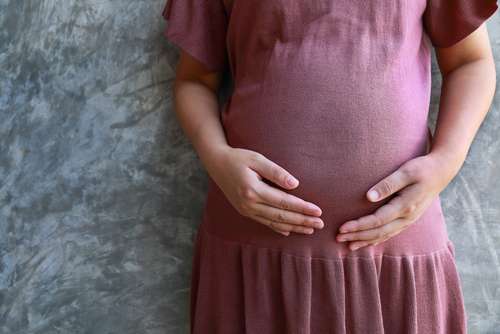
Fighting Cancer When You’re Pregnant
While the percentage of women diagnosed with cancer during pregnancy is small, it does happen. The common cancers that may affect a woman during pregnancy are breast cancer, cervical cancer, ovarian cancer, and thyroid cancer. One of the bigger concerns around cancer during pregnancy is detecting it. Symptoms like bloating, headaches, breast changes, vaginal and/or rectal bleeding are often pregnancy-related, and that makes detection tougher.
All symptoms that are considered as ‘abnormal’ are tested further by gynaecologists. This includes doing blood tests and an ultrasound that can help in finding the tumour in the body. Ultrasounds and advanced form of imaging like MRIs are considered safe during pregnancy. This is often followed by a biopsy of the affected area if needed.
Treatment Options for Cancer When You're Pregnant
Most cancers are treated with surgery, chemotherapy and radiation, but when pregnant, these methods might be altered keeping the mother and the unborn baby’s health in mind.
Surgery is often the first line of treatment in cancer. According to doctors, surgery is the safest cancer treatment option during all stages of pregnancy. Doctors remove the tumour and some surrounding healthy tissues during the surgery which holds very little risk to the foetus.
- First Trimester Cancer Treatment Options
If cancer is detected in the first trimester, there are chances that the development of the foetus could be affected with various treatment plans under chemotherapy and radiation. Depending on the diagnosis, the doctor could delay starting the treatment or abort the foetus if delaying treatment is not an option. Radiation and chemotherapy are usually not given to pregnant women in their first trimester because of the potential harm it may cause to the developing foetus.
- Second and Third Trimester Cancer Treatment Options

In the second and third trimester, the foetus may not be as affected with the drugs or radiation but the doctor might either try delaying the beginning of treatment or induce early labour to deliver the child before beginning treatment depending upon the duration of pregnancy. Some chemotherapy and other drugs may be given during the second and third trimesters without causing harm to the foetus. But chemotherapy given during the second and third trimesters may be associated with early labour and low birth weight. Breastfeeding the baby while one receives chemotherapy treatment could transfer the chemotherapy drugs to the baby through the milk.
Depending on the dose of radiation and the area of the body being treated, radiation therapy can be used in the second or third trimester. For breast cancer or head and neck cancers which are located far from the uterus, careful planning is used when using radiation therapy. Some kind of blocks are used to reduce the amount of radiation the unborn child is exposed to.
All of the treatment options under surgery, chemotherapy and radiation are explored after determining the following:
- The type and severity of cancer diagnosed
- The location of the cancer
- The stage of the cancer
- Stage of pregnancy
- Other health parameters of the mother and child
One important thing to know is that pregnancy doesn’t increase the chances of getting cancer. Doctors often customize plans for pregnant patients with several unique factors in mind. No cancer is the same for every person, and neither is its treatment.

